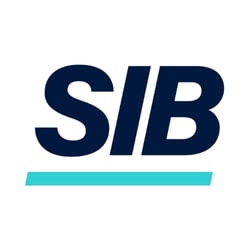Dive Brief:
- Pessimism among audit partners surged this quarter on concerns that the U.S. economy will fall into recession, with 44% of top audit professionals holding a gloomy view of the outlook compared with 10% last fall, the Center for Audit Quality said Thursday.
- Sixty percent of audit partners identified a downturn as one of the largest risks for businesses, and optimism plunged to 15% from 38% during the period, the CAQ said, describing results of a quarterly survey. At the same time, 63% of the financial executives also identified “trade issues” as a large risk.
- “Fear of a potential recession, ongoing geopolitical instability and trade uncertainties have prompted companies to double down on financial performance, cost management and risk mitigation strategies,” the CAQ said in a statement.
Dive Insight:
U.S. gross domestic product will likely expand at a 3.8% annual rate during the second quarter, after shrinking 0.2% during Q1, the Federal Reserve Bank of Atlanta said Thursday.
Companies during Q1 got ahead of Trump administration tariffs and stocked up on imports, pushing down the GDP tally. The trend reversed in April as tariffs took hold, and the U.S. trade deficit fell as imports plunged at a record pace, the Commerce Department said Thursday.
The economy will likely slow in coming months, and unemployment may rise, because of the higher cost of imports, Fed Chair Jerome Powell and other central bank officials have recently said.
Businesses may inhibit economic growth by forgoing investment because of the difficult-to-predict impact from Trump administration shifts in trade, regulatory, fiscal and immigration policies, according to Fed officials.
Also, demand may weaken in coming months as households reduce spending, Fed Governor Adriana Kugler said Thursday in a speech.
“Personal income and consumption point to a slight moderation in economic activity,” Kugler said. “While personal disposable income increased at a healthy pace so far this year, consumption grew more slowly in April, which may indicate consumers are becoming more cautious.”
Meanwhile, the highest U.S.tariffs since the 1930s, and other policy changes under President Donald Trump, may weaken the job market, complicating the Fed’s efforts to meet its mandate of ensuring maximum employment, she said.
“There is the prospect that trade and other policy changes could raise the unemployment rate and push employment away from our objective” of maximum employment, Kugler said Thursday in a speech.
Yet in the weeks ahead rising price pressures will likely pose a bigger threat to the economy than a slowdown in growth and a weakening job market, Kugler said, adding that most Fed officials share her view.
“My primary focus right now is inflation,” she said in response to a question after her speech. “Once tariffs are implemented fully we can then start talking about a greater slowdown [in the economy], because those increases in prices will call for a reduction in demand.”
Most Fed officials are more concerned about higher prices than slower growth, Kugler said.
“I think the vast majority are, first and foremost, worried about inflation right now before they’re worried about a potential slowdown,” she said, noting “I do think there’s going to be repercussions down the road also on GDP.”
Like Kugler, Philadelphia Fed President Patrick Harker said Thursday that the policy-setting Federal Open Market Committee should not alter borrowing costs until it gains more visibility on the outlook for inflation, employment and economic growth.
“A deliberate approach is as important as ever given that we do not yet have a clear picture of the ultimate impact on inflation and employment of the changing economic policies and priorities in Washington,” Harker said in a speech.
“I am supportive of the recent decisions from the FOMC to keep the Fed’s policy interest rate steady,” he said. Fed officials are scheduled to meet June 17-18 to discuss monetary policy.
Along with trade policy turbulence and threats to economic growth, cybersecurity also looms large on the list of concerns among audit partners, the CAQ said.
“The combination of a potentially volatile global economy with threats like a 17% increase in cybersecurity attacks has led to a significant departure from 2024’s tentative optimism on the future of the economy,” the CAQ said.
















